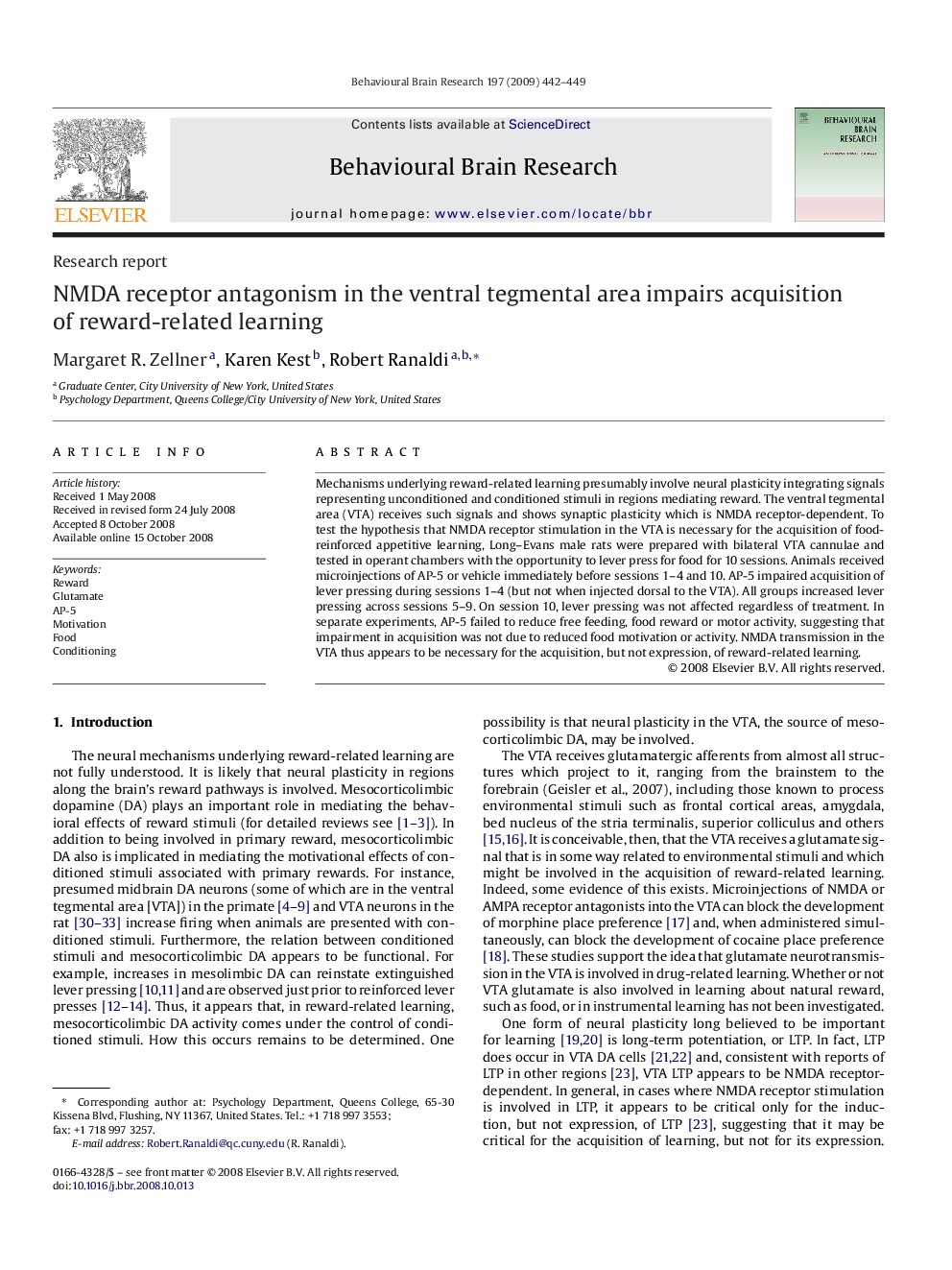| Article ID | Journal | Published Year | Pages | File Type |
|---|---|---|---|---|
| 4315069 | Behavioural Brain Research | 2009 | 8 Pages |
Mechanisms underlying reward-related learning presumably involve neural plasticity integrating signals representing unconditioned and conditioned stimuli in regions mediating reward. The ventral tegmental area (VTA) receives such signals and shows synaptic plasticity which is NMDA receptor-dependent. To test the hypothesis that NMDA receptor stimulation in the VTA is necessary for the acquisition of food-reinforced appetitive learning, Long–Evans male rats were prepared with bilateral VTA cannulae and tested in operant chambers with the opportunity to lever press for food for 10 sessions. Animals received microinjections of AP-5 or vehicle immediately before sessions 1–4 and 10. AP-5 impaired acquisition of lever pressing during sessions 1–4 (but not when injected dorsal to the VTA). All groups increased lever pressing across sessions 5–9. On session 10, lever pressing was not affected regardless of treatment. In separate experiments, AP-5 failed to reduce free feeding, food reward or motor activity, suggesting that impairment in acquisition was not due to reduced food motivation or activity. NMDA transmission in the VTA thus appears to be necessary for the acquisition, but not expression, of reward-related learning.
